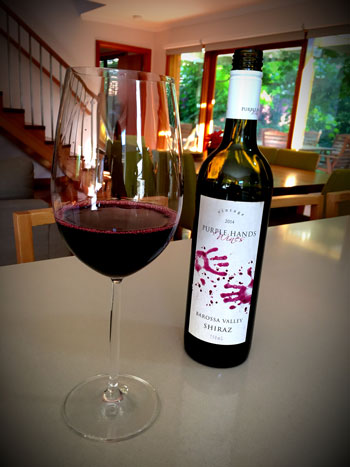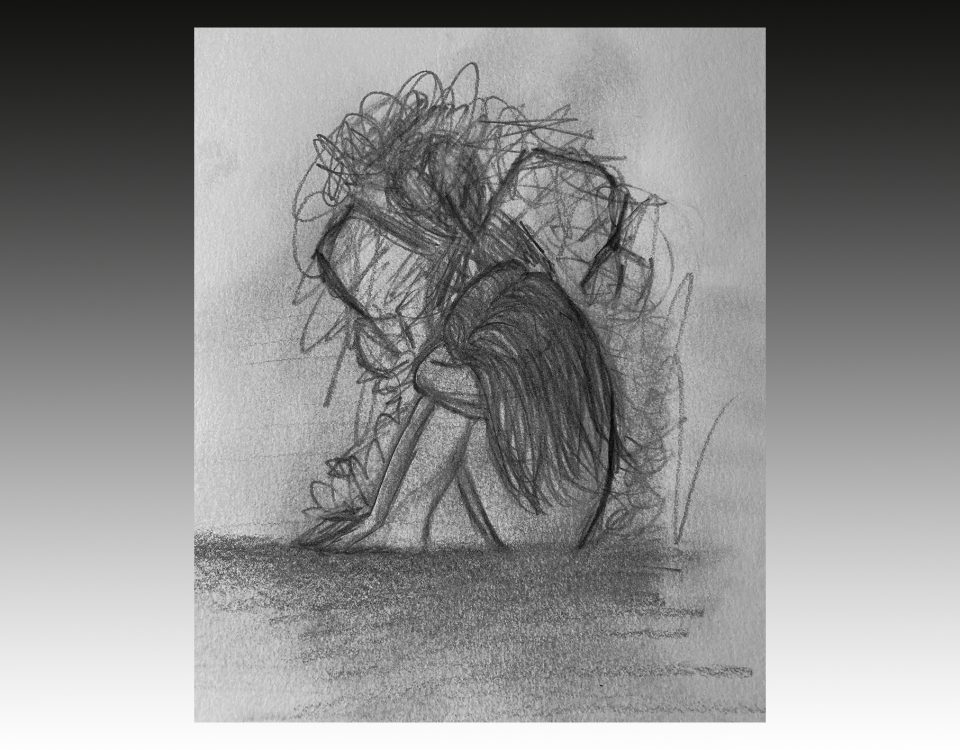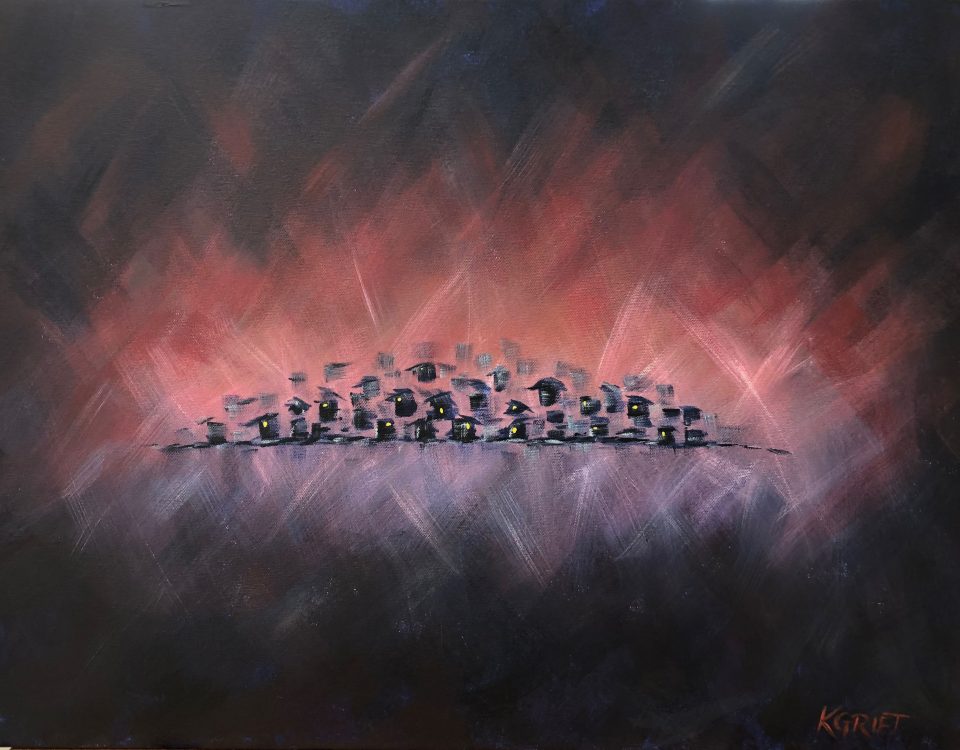
That’s My Girl
February 12, 2016
A glass half full
March 12, 2017She takes a sip but the liquid is scalding hot, she’ll have to let it sit for a bit.
A bit, a moment in time, she’s allowing herself that. Time to stop. If only it could stop her mind going over and over what happened.
She perches herself on a stool by the kitchen bench, elbows on the bench, and clasps her hands around the mug. She feels the warmth of the mug permeate her fingers.
Why was warmth so calming? This one sensation so gentille compared to the harshness of its opposite, cold, that infiltrated the body to the bone. She recalls a comment one of her children said the other day, that he prefered being cold to being hot. How did that conversation come about? Was it just kids talking in the frank, open way kids do? She hadn’t taken in the the rest of what they’d said but she’d heard that. “No you don’t,” she’d snapped, “No-one does.”
She blows on the steaming, stained water, the mug is close to her lips and she can feel the moisture of the steam on her face. Her lips slowly suck in a small mouthful of tea. Better, she can manage it now.
The tea is extra sweet, two heaped teaspoons of sugar, black and strong. The sugar helps cut through the bitterness of the brew. This is how she likes it, the same way her mother drank her tea and no doubt her mother’s mother before her. Why do we do that? Humans. Such learned behaviour. Is anything ever really original?
She can feel the hot tea travel down her gullet, not burning but still hot and she takes another small sip.
It’s nice, this sitting, drinking tea. The house is quiet, everyone has finally gone, the kids are asleep. There were many other cups of tea made when they were here, mostly made by other people for her, other people in her home making tea for other people, so many people coming and going, so many cups of tea, but mostly she’d take a sip, put the mug down and not get back to it until it had gone stone cold.
Then later, a bench full of empty mugs, misplaced dishes put by well-meaning people in haphazard locations around the kitchen and a fridge full of donated food she would never normally eat.
Another human anomaly: donated food and cups of tea in times of despair and grief. Who made that rule? “I didn’t know what else to do, so I made you this,” they would say when they came. Then, “I’ll put the kettle on.”
“There is nothing you can do,” she’d wanted to say, “You can’t undo death,” but instead, she’d smiled and said “Thanks, it will help.”
And it did help, she didn’t want to sound ungrateful. It helped keep food in her kids’ bellies. This stage, it was all about survival and she knew she was barely capable of keeping herself nourished let alone cooking anything decent her kids might eat. And they were suffering too, of course they were.
But inside, in her gut that hadn’t stopped churning since the day she’d got the call, she didn’t want it, she didn’t want any of it, not the cups of tea, not the food, not the people in her home, not the sympathetic looks, the hugs or the empty words: “If there is anything we can do, anything at all.”
She wanted them all to fuck off, she wanted the present to fuck off and the past to return. She didn’t want any of it to be part of her reality, her now. She didn’t want survival. She didn’t want stages, ticking off the stages of grief until finally reaching acceptance and healing. Healing. What a ridiculous concept.
She did want to slam her fists into the kitchen cupboard doors. She did want to drive fast, erratically, uncontrollably, dangerously. She did want to scream, to fill her lungs to capacity and puncture the air with the loudest sound her body could muster, expelling just one word to the world around her.
Why.
Why him? Why now? Why that way?
She shifted in her seat a little, her backside had gone numb sitting so still while her mind raged within. Her knuckles were white around the cup but the tea, this cup at last was soothing. It was as if the warmth of each sip might melt away the grip that anguish had held over her body since the call.
She’d thought it would be him when her phone had rung, calling to say he’d got back to the town safely and would be driving home the next day. He would have told her how beautiful the hike was, hard, but worth every step. She would have lived it through him because she rarely joined him now on these hikes, not since the kids were born. But she knew he needed it, the fresh air, that connection with nature so she’d let him go. And he always travelled safe, smart.
But it wasn’t him. A private number. Normally she let it go to voicemail but she answered it this time. An avalanche they’d said. He might have triggered it himself in the area he was hiking, they couldn’t be sure. They’d said there was still hope, people had been known to survive for some time buried under snow, if they had a pocket of air to breathe and if they could find him quick enough.
Her world stopped but the hours dragged on. People started arriving, making those cups of tea. But hope faded, replaced with quiet whispers in corners of rooms inside her house, words away from the children but murmuring their name. Talk turned to looking for answers, to finding a body. Something that could give her closure. Closure.
The cold. The cold had infiltrated his bones, had taken his last breath. She didn’t want to think of him trapped under the snow, but her mind took her there anyway. Were his last thoughts of her, of the kids? Or were they just of desire for warmth?
As she drained her cup she let these thoughts swirl around her mind. There was nothing original in them either. She’d thought them before and she’d think them again. Even his death wasn’t original, countless others before him had met their death being frozen in time.
But she had this moment, this bit, where she could sit and think just of him, and she’d take it, she vowed to always take it when the moments presented themselves. The way he tilted his head when he talked; the way he snuck up behind her and kissed her neck, just below her ear, the place he said was his favourite spot; the way he flung his daughter up over his shoulder as he marched her off to bed; the way he chewed his food always on one side of his mouth and the way he talked in his sleep. So many things that charged through her mind at any time of day. Even into her dreams. These were all him, original.
And the fragments of time, of memory, were all hers.




1 Comment
Beautiful!! Straight from the heart & so moving!!